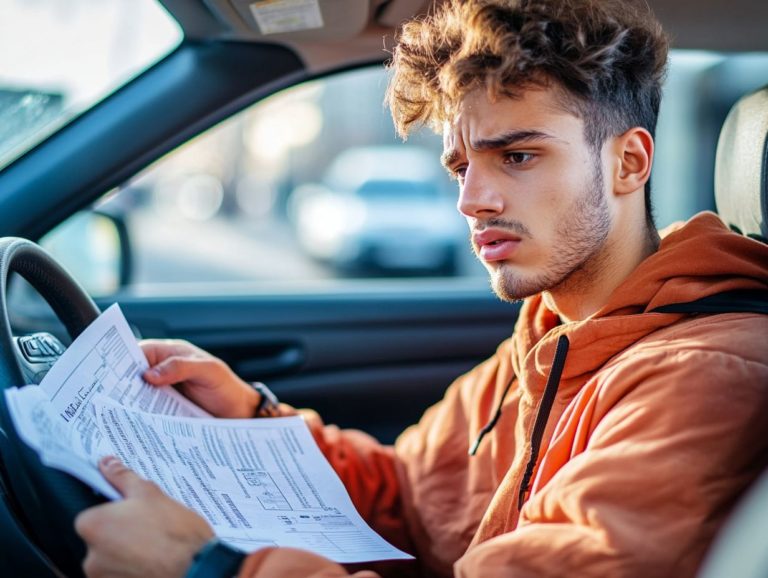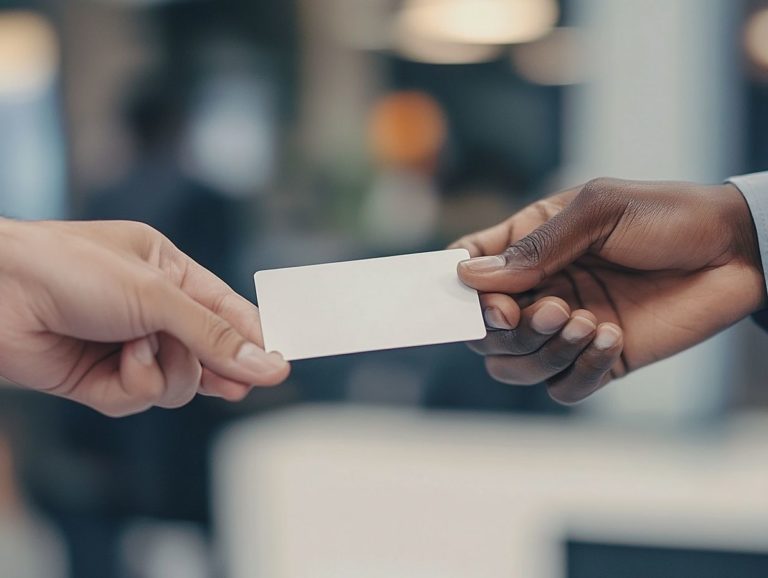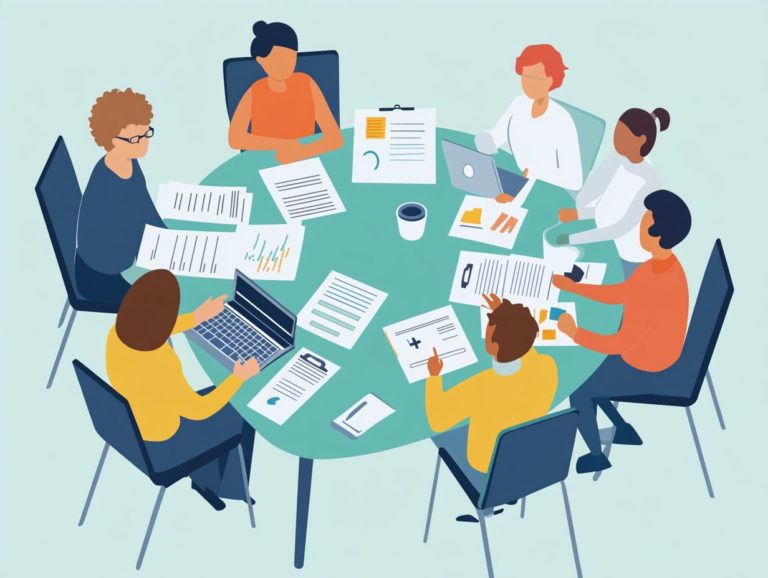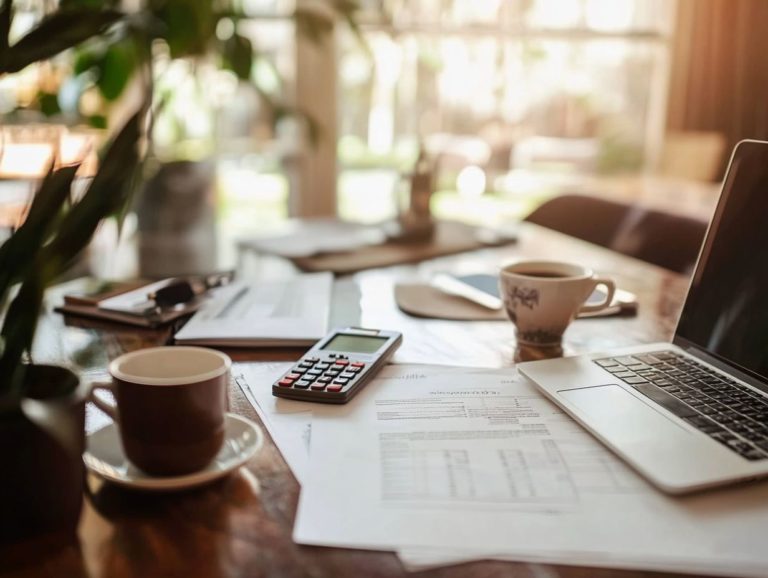What Should You Do After an Accident?
Accidents can be both shocking and disorienting. They leave you grappling with uncertainty about your next steps.
Understanding the immediate actions to take can significantly impact your safety and protect your rights. Calling for assistance, collecting critical evidence, managing insurance claims, and seeking medical care are all pivotal actions in your recovery journey.
This guide is designed to navigate you through the essential steps post-accident, ensuring you re thoroughly prepared to handle the aftermath with confidence and clarity.
Contents
Key Takeaways:
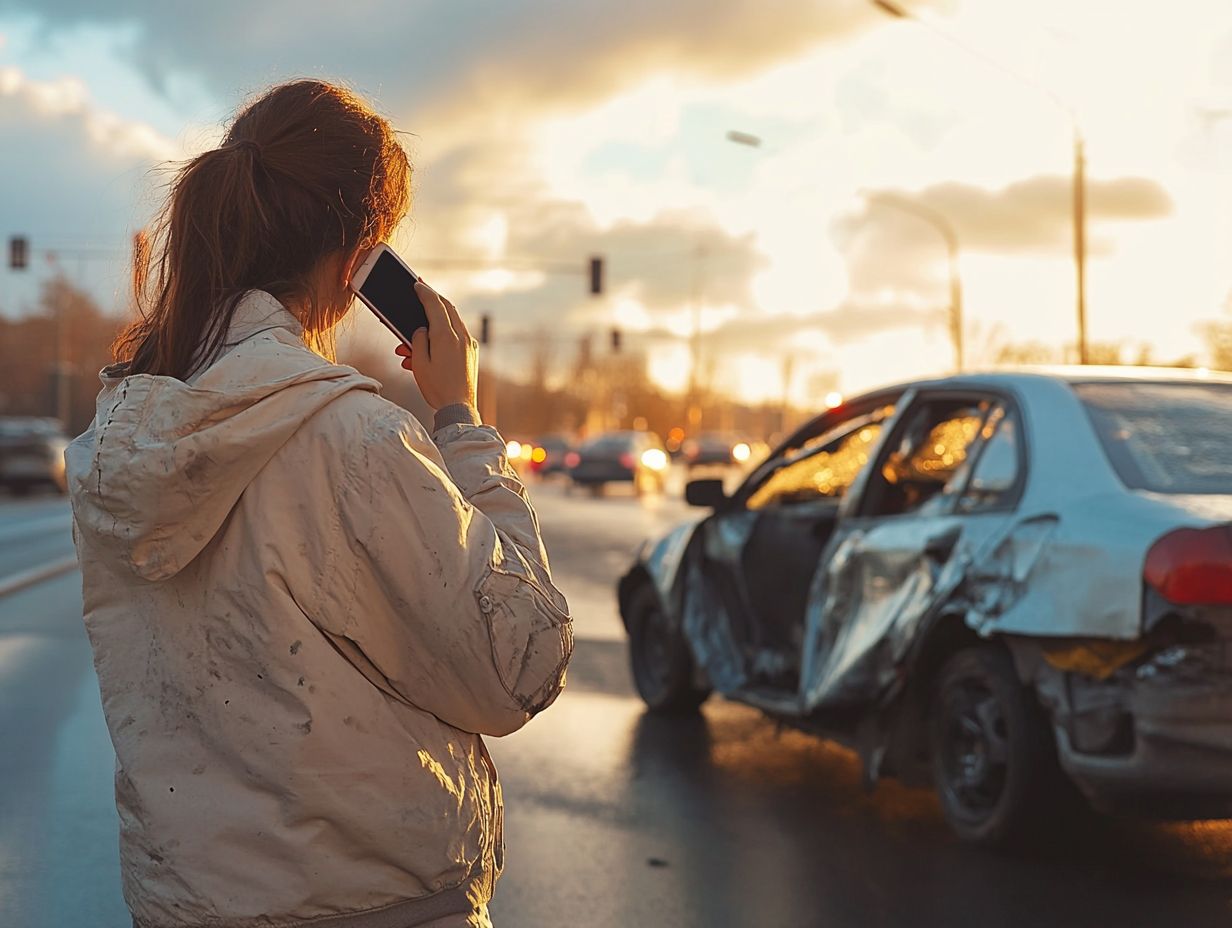
- Ensure the safety of yourself and others involved in the accident by calling for help immediately.
- Document the accident by gathering evidence and information to support your case with insurance companies.
- Seek medical attention even if you feel fine; it’s crucial to have a medical evaluation for any potential injuries.
Immediate Steps to Take After an Accident
After experiencing a car accident, staying calm and following key steps is essential to ensure safety and streamline the claims process.
- Begin by checking for injuries among everyone involved yourself, your passengers, and the other drivers.
- If someone is hurt, don t hesitate to call for medical assistance and ensure your warning lights are on to alert other motorists.
- Next, contacting the police is crucial for filing an official accident report.
- Document the scene and exchange information with the other driver; this will bolster your claims process with your insurance company.
- Make sure to take pictures of vehicle damage and the surrounding area; these details can make a difference later on.
Ensuring Safety and Calling for Help
Ensuring your safety after a car accident is paramount. It all starts with checking for injuries among everyone involved.
This essential step involves a careful assessment of each person s condition, allowing you to pinpoint any serious injuries that might require immediate medical attention. If injuries are present, your first action should be to call emergency services; this swift response can truly make a difference.
Remember to turn on your vehicle’s warning lights to alert oncoming traffic, enhancing safety for everyone and ensuring visibility. If medical treatment is necessary, gather information about the accident, including the location and details of the other parties involved.
These steps not only promote safety but also set the stage for any potential legal processes that may arise.
Documenting the Accident
Documenting the accident effectively is essential for a successful insurance claim, as it provides the critical evidence needed for the claims process.
Start by taking pictures of the scene, capturing vehicle damage, street signs, and any pertinent road conditions. Collect all relevant information from the other driver, including their name, contact details, driver s license number, and auto insurance information.
If there are any witnesses, it s wise to gather their statements as well; these can significantly strengthen your accident report. Lastly, don t forget to file an official report with local law enforcement, as this will be crucial for your insurance company when processing your claim.
Act now to secure your rights and ensure you re prepared for the next steps in your recovery!
Gathering Evidence and Information
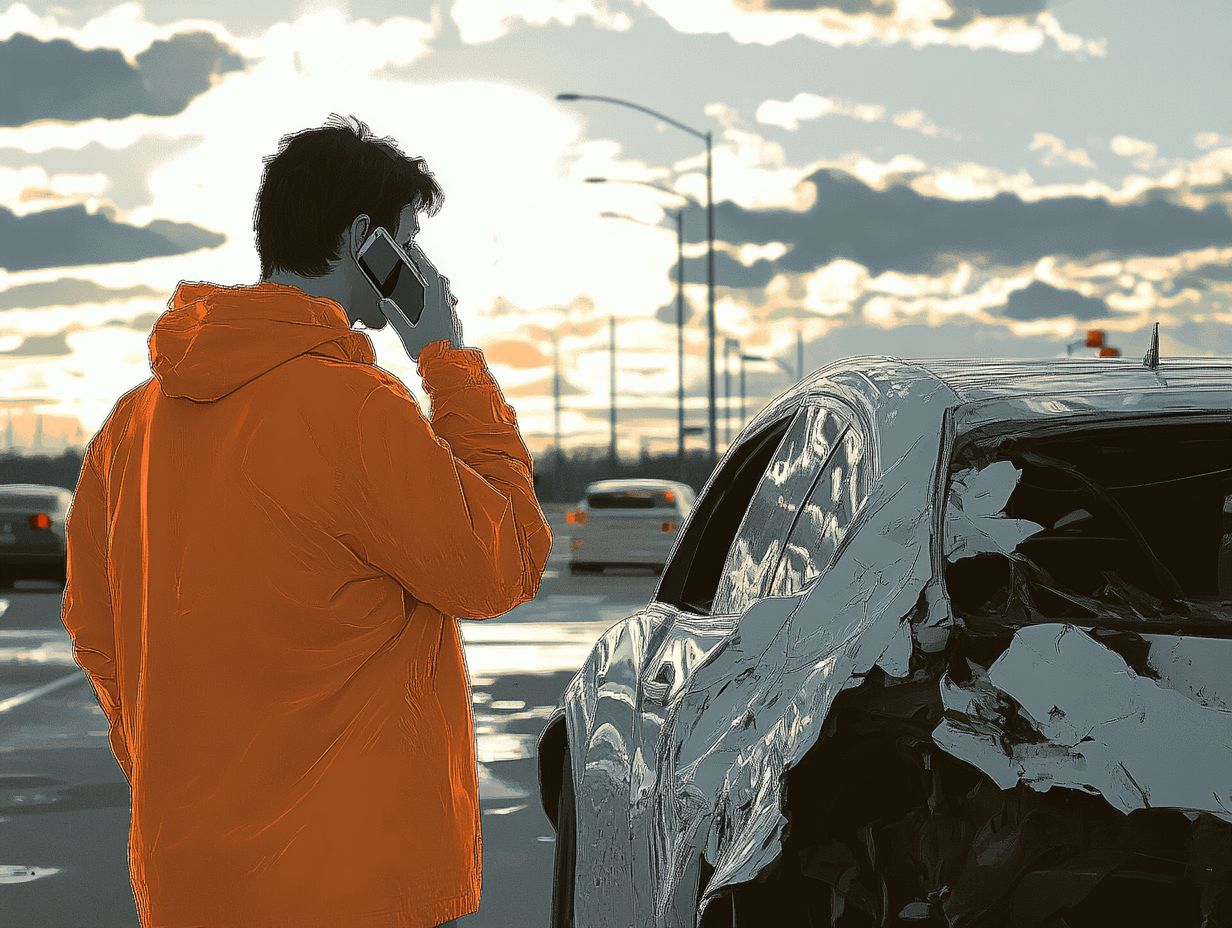
Gathering evidence and information after a car accident is essential for substantiating your insurance claim and ensuring a seamless claims process.
This task involves more than just jotting down details. You need to document the accident scene meticulously and capture images of any vehicle damage from various angles. These photographs serve as concrete proof of the damages incurred, helping to create a comprehensive narrative of the incident.
Don t forget to exchange information with the other driver, including their insurance and contact details. This will be crucial for your records. Be sure to note the time, date, and specific location of the accident; these details can prove invaluable when you engage with insurance companies.
Proper documentation can greatly influence the outcome of your claim, making it easier for you to navigate the often complex insurance landscape.
Mastering Your Insurance Journey!
Navigating the world of insurance companies can be challenging after a car accident. Grasping the necessary steps can make the experience much smoother for you.
When you reach out to your insurance company, provide a clear and concise accident report that includes all the evidence and information you’ve gathered. If there are personal injuries or property damage, ensure these details are thoroughly documented in your claim.
Don t overlook the importance of insurance that covers you if the other driver doesn t have enough insurance. Be ready to negotiate with your insurer to secure a fair settlement that truly reflects your circumstances.
Filing a Claim and Negotiating
Filing a claim and negotiating with your insurance company is crucial after a car accident, as it directly affects how your expenses will be managed.
While navigating this process might seem daunting, breaking it down into manageable steps can simplify things significantly.
- First, ensure you ve documented the accident thoroughly by taking clear photos and gathering witness statements.
- Next, submit the accident report alongside all relevant documentation like medical bills and repair estimates to your insurer.
- When discussing your claim, be ready to negotiate; the initial offer might not fully cover your expenses.
- It s also wise to ask about accident forgiveness programs, as they could help you avoid steep premium increases.
Being well-prepared and assertive in your discussions can significantly shape the outcome in your favor.
Get Medical Attention ASAP!
Getting medical attention right after a car accident is crucial for both your health and any potential claims for injuries you sustained due to the accident. Even if you feel fine, some injuries may lurk beneath the surface.
It’s essential to consult a medical professional who can thoroughly assess your condition and document any injuries sustained during the accident. This documentation will be crucial in supporting your accident report and future insurance claims related to personal injury.
Always prioritize your health and well-being, as well as the legal implications that may arise from the incident.
The Importance of Medical Evaluation and Treatment

The significance of medical evaluation and treatment after a car accident is paramount, as it can greatly influence your recovery and any potential claims for personal injuries.
A thorough medical assessment is essential; it not only uncovers any hidden injuries early on but also provides vital documentation for future claims. Insurance companies and legal representatives place considerable weight on detailed accident reports and medical histories to evaluate injuries and determine liability.
Accurate evaluations empower you to build a stronger case. Seeking prompt medical attention is crucial, as this documentation often plays a pivotal role in negotiations and can significantly affect settlements. Prioritize comprehensive medical evaluations in the aftermath of an accident!
Legal Considerations
Understanding legal considerations after a car accident is crucial for protecting your rights. This is especially true if you have a personal injury.
Consulting a lawyer can provide vital support during accident claims and insurance negotiations. They help interpret your accident report and assess its impact on your driving record.
Knowing when to seek legal help is key to getting a fair settlement and meeting legal requirements.
When to Consult a Lawyer and Understanding Your Rights
It’s essential to know when to consult a lawyer after a car accident. This is especially important in cases of personal injury.
If you have injuries or significant property damage, a lawyer can guide you. They understand personal injury claims and ensure that every detail is considered.
Lawyers can review accident reports and determine who is responsible. With their help, you can understand your rights and seek the maximum compensation available.
By clarifying your legal rights, a lawyer empowers you to make informed decisions. This may involve negotiating with insurance companies or taking your case to court.
Consulting a lawyer can be critical in securing the compensation you deserve.
Frequently Asked Questions
What Should You Do After an Accident?
First and foremost, ensure everyone’s safety. Check for injuries and move to a safe location if possible.
Should I Call the Police After an Accident?
Absolutely! Always call the police after an accident, even if it seems minor.
Do I Need to Exchange Information With the Other Driver?
Yes, it is important to exchange information with the other driver involved in the accident. This includes their name, contact information, insurance information, and license plate number.
What Should I Do if I am Injured in an Accident?
If you are injured, it is important to seek medical attention right away. Even if you do not think your injuries are serious, it is better to get checked out by a doctor.
Should I Take Photos of the Accident Scene?
Yes, taking photos of the accident scene can be helpful for insurance purposes and documenting the damage to both vehicles.
When Should I Notify My Insurance Company?
You should notify your insurance company as soon as possible after an accident. Most insurance companies have a time limit for reporting accidents, so it is best to do it as soon as you can.



